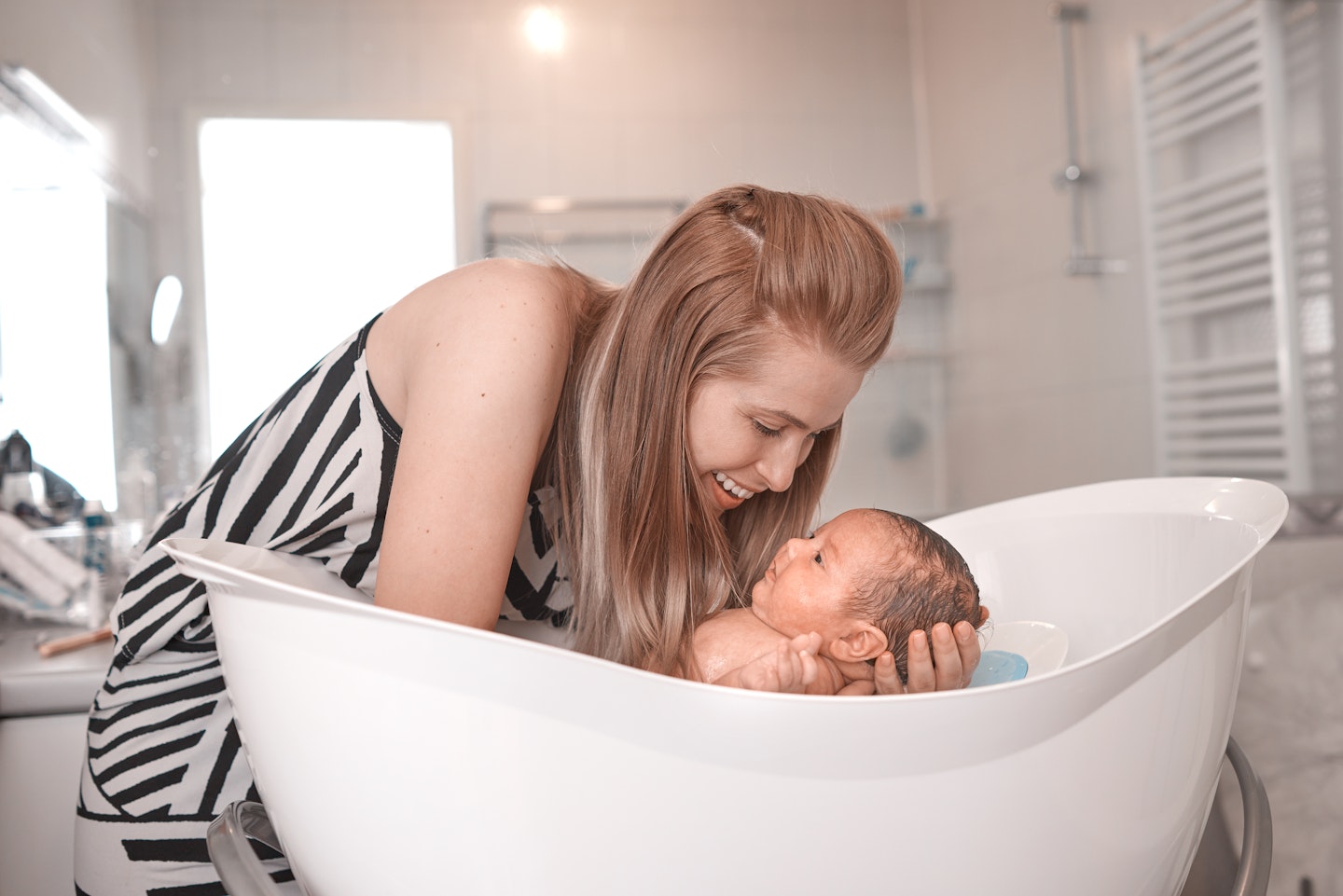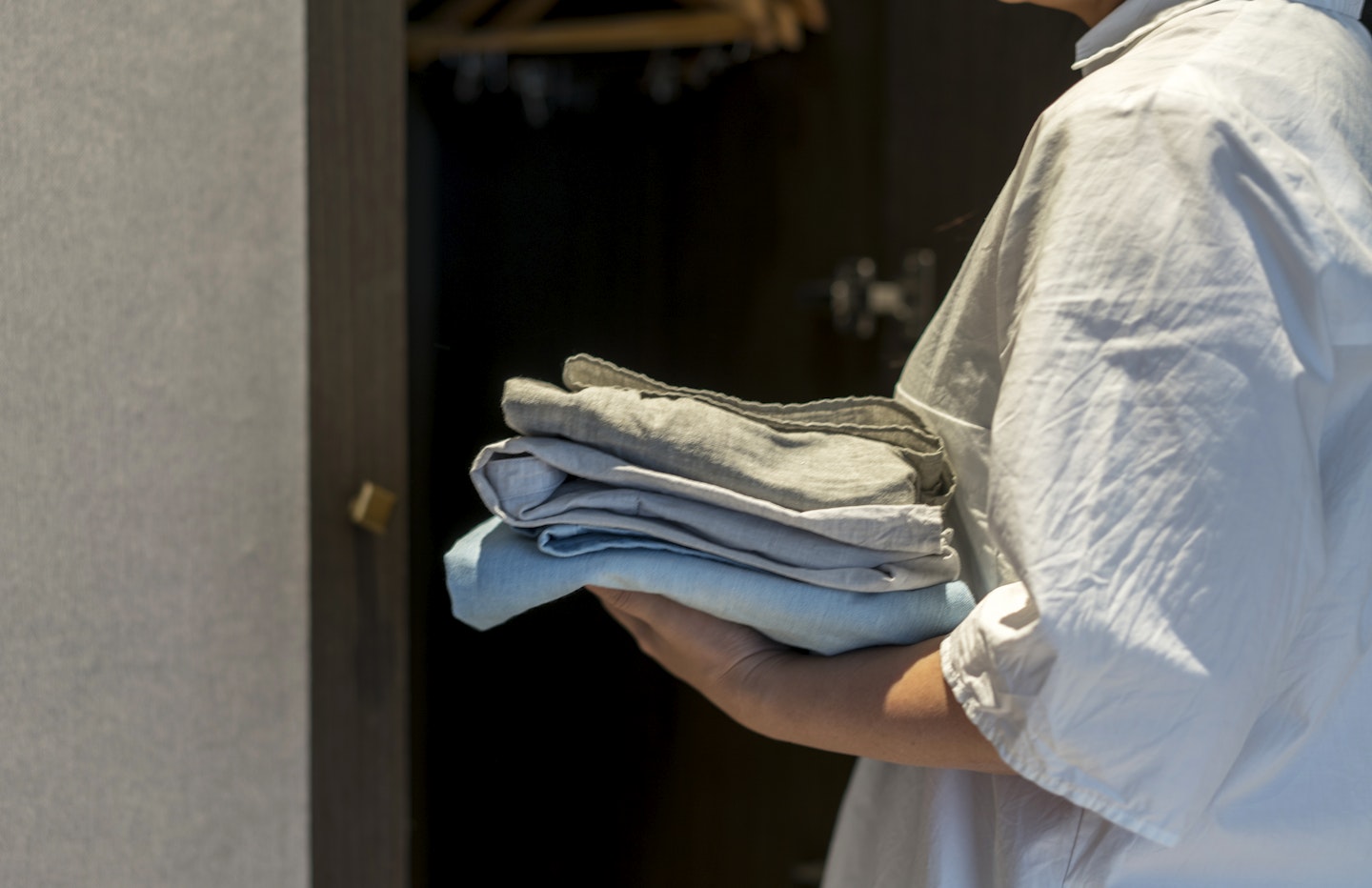Pre-kids, not much sleep used to be a) a good night out and b) nothing that caffeine and a bacon sarnie couldn’t fix. Now that you’re a mum, the amount of sleep you get depends on your baby.
And, when it comes to night-time, some just don’t play ball. You want to get up close and personal with your pillow, but she wants feeding, burping, cuddling and soothing. Sadly, you can’t will your little one to snooze through the night, waking only when you’re dressed, showered and ready to face the day.
But there are things new parents (unwittingly) do that make bedtime harder. Make sure you’ve got the right approach to bedtime and avoid these 5 mistakes every new parent makes...How many do you recognise?
baby sleep mistakes
 1 of 5
1 of 51) Expecting too much, too soon
You’ve sung the lullaby and drawn the blackout blind, but your little one still won’t nod off. That’s because babies aged 12 weeks and under have no concept of the difference between night and day.
In fact, the hormones that control our patterns of sleeping and waking don’t start to kick in until around three months old. Younger than that and there’s no point in expecting anything from her sleep-wise – she just has to follow her own needs.
Babies of this age are also so small that their stomachs can’t hold much milk. They need to feed frequently and, when they get hungry, they wake up.
It’s not until around 16 weeks that your baby might be able to go without a feed for long enough to give you a decent stretch of sleep yourself.
‘Evenat nine months old, 60% of babies still wake at night. It’s normal,’ says Sarah Ockwell Smith, author of BabyCalm: A Guide For Calmer Babies And Happier Parents. ‘You will save yourself a lot of heartache if you go with the flow.’
So, lessen your expectations and, remember, it’s normal for parents to be this tired.
 2 of 5
2 of 52) Doing too much
Yes, you’ve had a baby, but life doesn’t stop. You’ve still got people to see, shopping to do, babygrows to wash…
But anything new is hugely stimulating for a baby who’s under 12 months. Every room will be full of different smells, sounds and sensations that she needs to adjust to.
Don’t introduce your baby to anything unfamiliar in the run-up to bedtime.
Her brain is working overtime, and the result is that she can become over-stimulated, then over-tired.
When this happens, it’s harder for her to get to sleep, because she’s upset. ‘This is a juggling act for parents,’ says Siobhan Mulholland, author of Helping Your Baby To Sleep. ‘Our lives are busy, but babies less than a year old are usually very happy in an environment that’s dull, boring and familiar.’
If you want to work towards a good night,the golden rule is not to do too much that’s new in any one day. And definitely don’t introduce your baby to anything unfamiliar in the run-up to bedtime.
 3 of 5
3 of 53) Rushing the bedtime routine
You’re exhausted. You can’t be bothered to run the bath. Or read a book. Tonight, just for once, you’ll just lay your baby down, very gently in her cot and... No, she’s not having it. That’s because, from about six weeks old, sticking to a routine is key to sleep.
It doesn’t matter what your routine is – bottle, bath, bed, or bath, cuddle, lullaby – what matters is that you do the same things every night. ‘This makes your baby feels secure and signals sleep,’ says Siobhan.
‘And it’s also calming for parents. Don’t try and get it done quickly – just enjoythis gentle time with your little one.’
Over time, these actions will start to lull your baby into sleep readiness. It won’t happen instantly.
But consistent bedtime routines will help get your child into the relaxed state she needs for sleep.
 4 of 5
4 of 54) Waking your baby up from a nap
Your baby barely sleeps at night, but is sparko during the day. Surely the best way to help her slumber more later is tostop her sleeping so much during the day?
Actually, it doesn’t work that way. The reality is that if you let a baby nap when she wants to, for as long as she wants to (during the day, as well as at night), the better her sleep routine will be.
If you let a baby nap when she wants to, the better her sleep routine will be
‘The only person who knows how much sleep your baby needs is her,’ says Sarah.
‘If you wake her up, you’re depriving her of rest that she wants. That will make her over-tired – and, if she gets over-tired, she’ll be grumpier and less able to get back to sleep later.’ It’s a double-whammy of badness.
Next time your baby is snoozing during the day, join her. It’s not the beauty sleep you’re used to, but those extra naps will help all of you feel better.
 5 of 5
5 of 55) Keeping things too quiet
Your baby has finally gone to sleep and you’re desperate not to wake her. So you creep around the house, being as quiet as you can be.
Good idea? No! If a sound is familiar to a baby, it won’t worry her – she’ll sleep right through it.
‘For example, if she’s used to her big brother singing, she’ll keep sleeping,’ says Sarah. ‘If she’s used to banging doors and creaking floorboards, those sounds won’t faze her. It’s unfamiliar noise that will wake her.’ Go figure.
If you spend the first 12 weeks tiptoeing all over the house, all you’re doing is creating problems for yourself down the line.
The best thing to do is to go about your business as normal when your baby’s asleep.
The quicker she gets used to it, the easier she’ll find it to sleep through it in the future. And it’ll make it easier for you, too.
